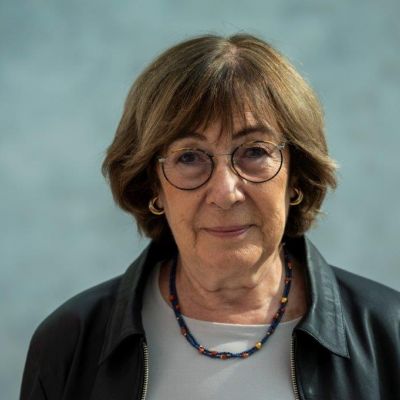"My last coffee in Germany": In 1970 Melek Tez arrives in Berlin as a Turkish guest worker. 14 years later she decides to leave Germany and return to her homeland. The film accompanies the protagonist during her last days in Germany and enquires after the motives for her decision.
All Melek has left is the German language. She claims not to have lived in Germany. Instead, she had to adapt to a culture that isn’t her own: as a foreigner, as a Turk, as a woman and as a worker. To a backdrop of labour shortages, hundreds of thousands of workers came from Turkey to the Federal Republic of Germany as of the 1960s. Some stayed, others later returned home. With this documentary, Jeanine Meerapfel succeeds in painting a complex portrait of a woman whose expectations of life in a democratically progressive country were to be disappointed. Rather, it was xenophobia and feelings of loneliness that shaped her everyday existence in Germany. No less importantly, the film touches upon the close relationship between the director and her protagonist Melek, the two having been friends for many years.
19.6. 17.00 MS Goldberg, followed by a discussion with Jeanine Meerapfel, director
Credits
original title Die Kümmeltürkin geht
international title Melek Leaves
german title Die Kümmeltürkin geht
JFBB section Hommage: Jeanine Meerapfel
country/countries DE
year 1985
duration 88 Min
Jeanine Meerapfel
BIO In her works, director Jeanine Meerapfel not only deals with her own German-Argentinean family biography, but also finds a language through her films with which she gives expression to feelings of un-/belonging and questions about her own identity and origins. She was born in 1943 as the daughter of German-Jewish emigrants in the Argentine capital Buenos Aires. After completing her studies in journalism, she came to Germany in 1964. She studied at the Institute for Film Design ("Institut für Filmgestaltung") in Ulm, among others with Alexander Kluge, who is still one of the most influential representatives of New German Cinema.
Against the backdrop of current political and social debates, Jeanine Meerapfel's films are still highly topical today: themes such as migration, experiences of flight and exile find their way into her films, as does the critical examination of the acute dangers of anti-Semitism and xenophobia.
The films are political, but not sober political cinema. Rather, they are very personal examinations of history, which always have a highly emotional relationship to Meerapfel's own family history.
This year, the Jewish Film Festival Berlin Brandenburg is dedicating a tribute to the director and current president of the Academy of Arts ("Akademie der Künste") and is showing seven of her works, which were made between 1980 and today.





